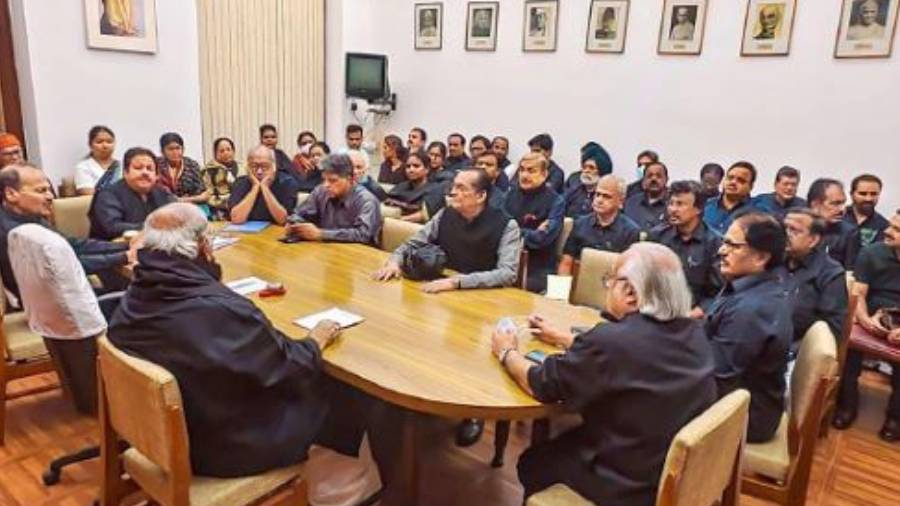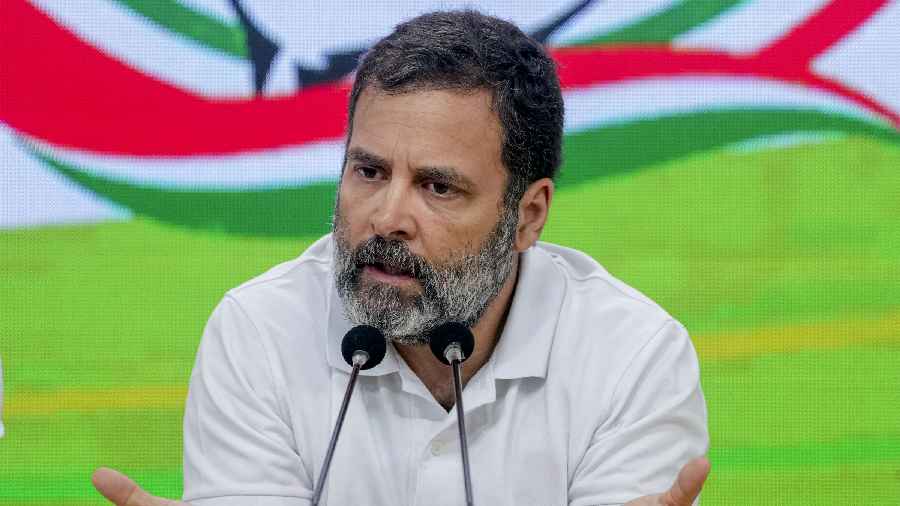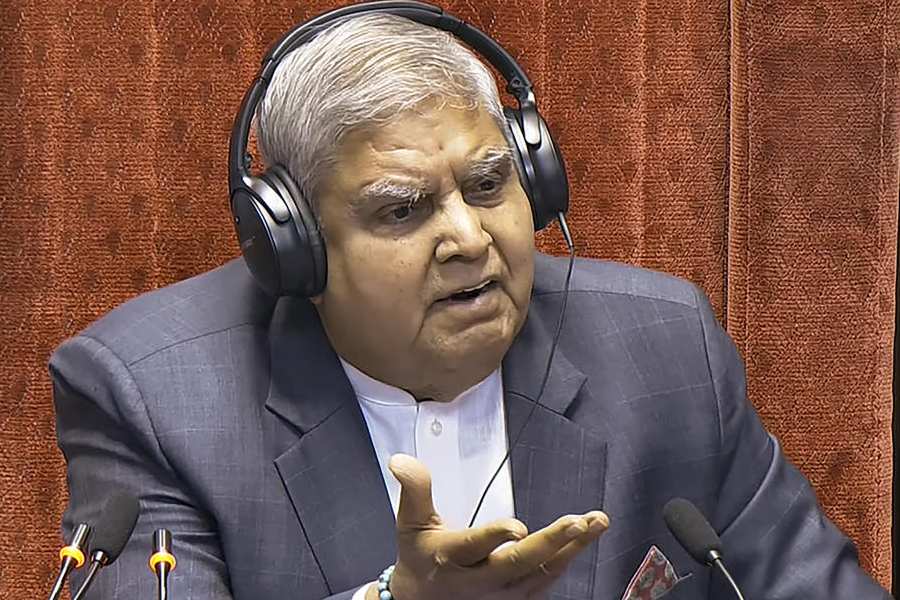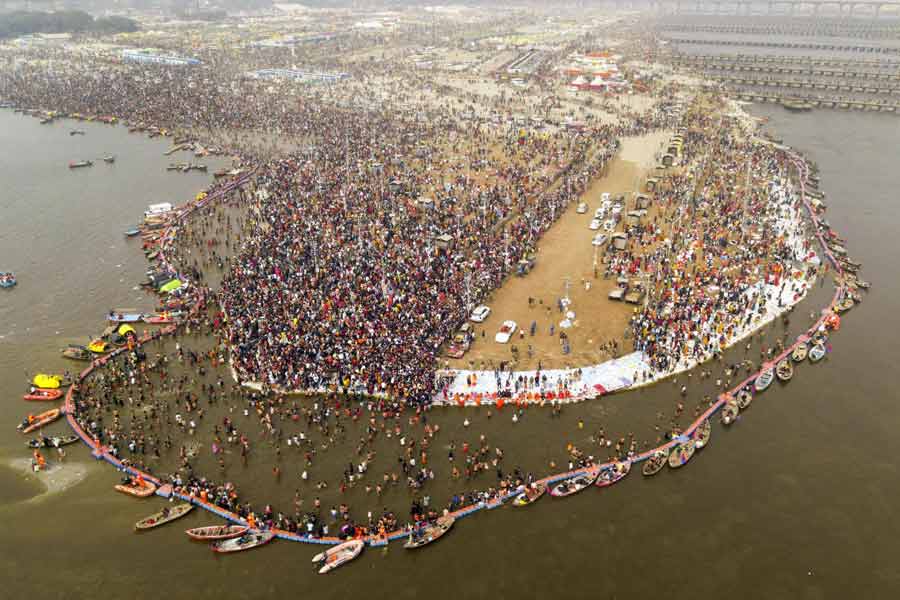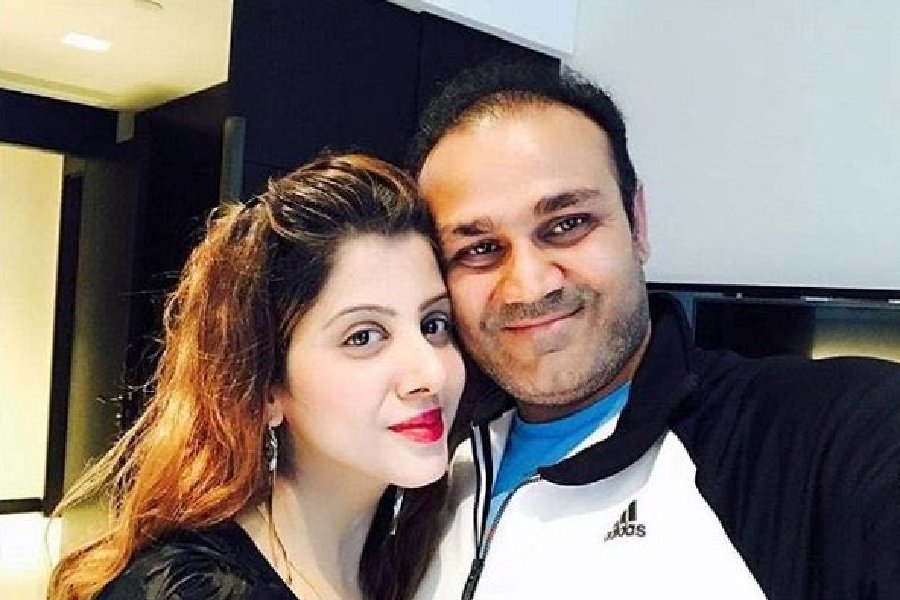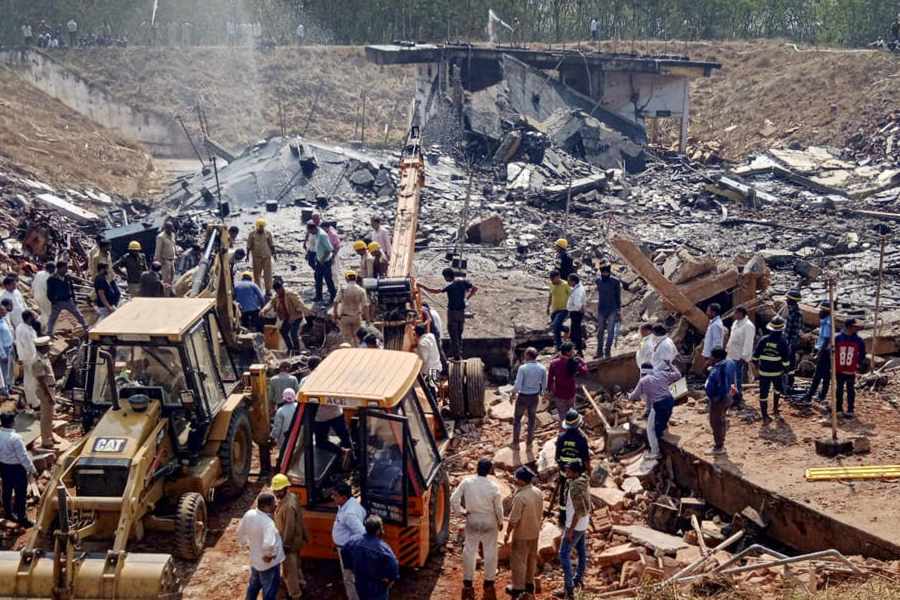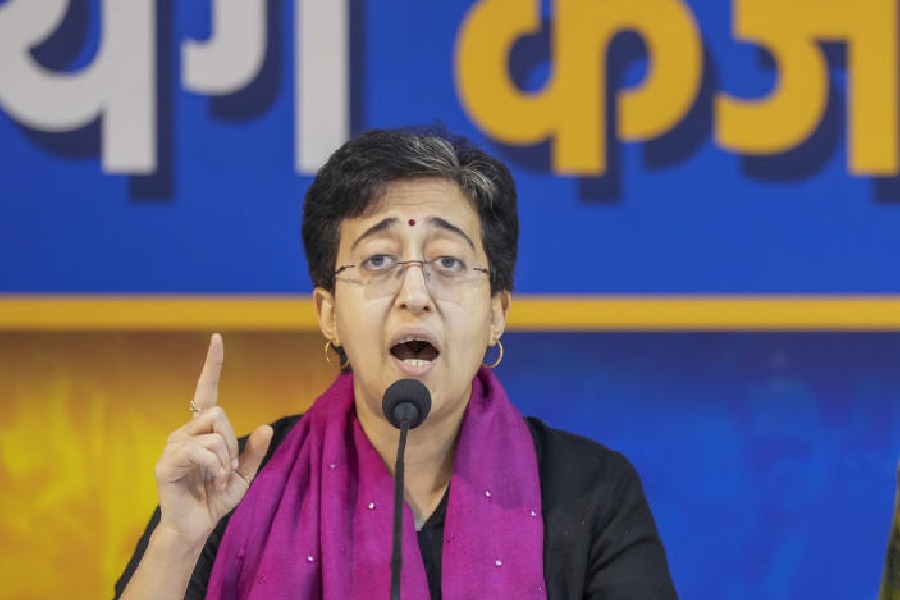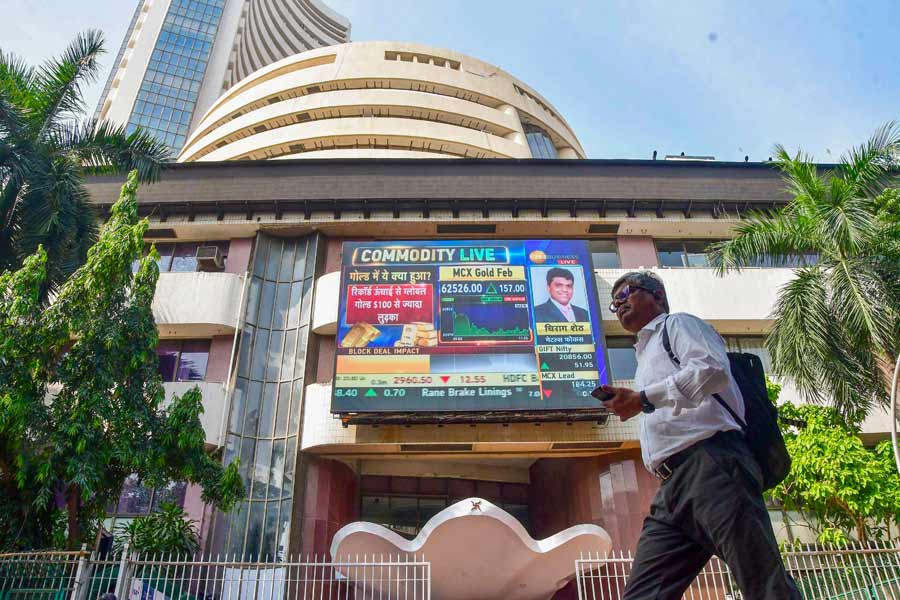The Congress on Tuesday announced a month-long, multi-tier countrywide agitation that will tell people that Rahul Gandhi was thrown out of Parliament only because he had exposed Prime Minister Narendra Modi’s links with businessman Gautam Adani.
The announcement comes a day after signs that Rahul’s disqualification from the Lok Sabha has strengthened Opposition unity — with 17 other parties attending a dinner hosted by Congress president Mallikarjun Kharge on Monday — and amid a police crackdown to prevent a Congress march on Tuesday evening.
Congress leaders K.C. Venugopal and Jairam Ramesh described Rahul’s disqualification as a “designed project” and “match-fixing”, insisting that the sole motive was to protect Adani.
The party says that feedback from the ground suggests the coupling of the two issues — Rahul’s disqualification and the government’s refusal to investigate Adani — has been successful, with most people viewing the Centre’s actions as unjust and undemocratic.
Sensing the popular mood, the Congress has declared an outreach programme that will culminate on April 30. The programme’s name, Jai Bharat Satyagraha, is the Congress’s attempt to answer the BJP’s focus on nationalism.
The agitation programme will start at the block level on March 29, graduating to the district and state levels over the next few weeks. A nationwide programme has been planned in the second week of April.
Clampdown
On Tuesday, Delhi police launched a clampdown on a “Loktantra Bachao (Save Democracy)” torch rally — an about 1km march — that the Congress planned to kick off from the Red Fort at 7pm.
Senior Congress leaders and MPs from both Houses arrived at the venue only to see the police block their path and forcibly bundle them into waiting buses. Many senior leaders were physically lifted and thrown into buses.
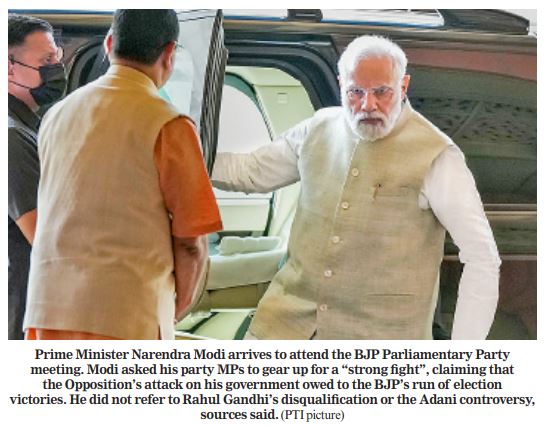
Chaos reigned over the area as multiple groups of Congress workers tried to enter the venue through whichever lane they could, sat on the road and shouted slogans.
Many party leaders expressed outrage at the police action, asking whether peaceful marches had been banned in the nation’s capital. The Congress asserted that the clampdown would be met with greater political resistance.
Unity bid
Apart from igniting the Congress, Rahul’s disqualification and the government’s protective shield around Adani have expanded and deepened Opposition unity.
At Monday’s dinner hosted by Kharge, Rahul explained that it was not about him but about the larger question of the survival of Indian democracy.
All the parties present agreed to set aside any minor differences and work together to protect democracy.
Taking the lead in demonstrating flexibility, the Congress promptly tried to assuage the feelings of Uddhav Thackeray, whose party had stayed away from the dinner in protest against Rahul’s repeated attacks on V.D. Savarkar.
When NCP veteran Sharad Pawar said that everyone should keep in mind the sensitivities of their fellow Opposition parties and that Uddhav had reason to be aggrieved, Rahul said he would keep that in mind in the future.
Rahul met Sena leader Sanjay Raut on Tuesday and spoke to Uddhav, assuring them that such contentious issues would be kept aside.
Raut said the chapter was closed, prompting Congress communications chief Ramesh to declare that “19 parties are united”.
The Congress is keen to preserve the newfound Opposition unity, triggered by a realisation among all the parties that as with Rahul, the Modi government might not honour democratic traditions in their cases as well.
“Nineteen parties are united and determined to fight for democracy. They have agreed that ‘Modani’ is the main issue,” Ramesh said.
“They realise the need to collectively fight against tanashahi (dictatorship). They agree that Adani would not have become so big without Modi’s active support.”
He added: “We asked 100 questions and those will be brought out in a book soon. These questions can be dealt with only by (a) joint parliamentary committee.”

